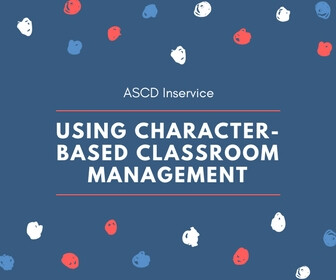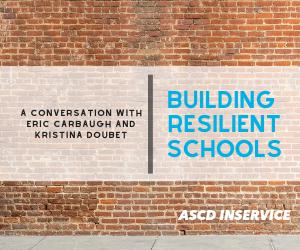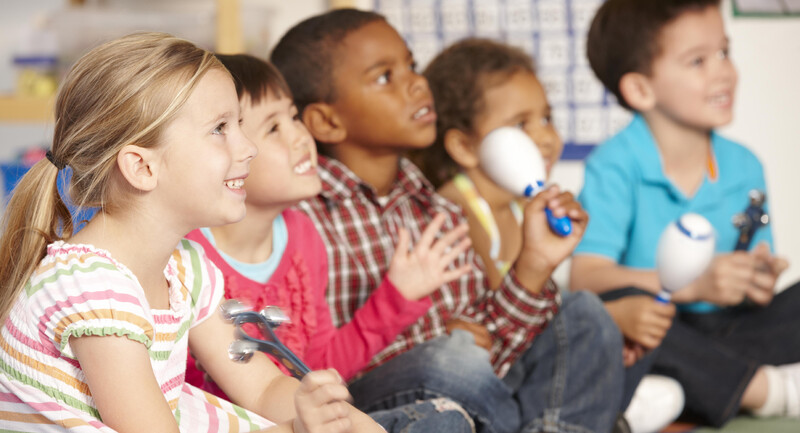Well, 2020 was a doozy. Who would have expected last December as we rang in the new year that the coming months would be filled with murder hornets, a global pandemic, rising racial tensions, record-setting natural disasters, and schools closing their doors to face-to-face instruction? Leaders and educators across the nation were tried, tested, and pushed to their max as they responded, pivoted, and leaned in to support their students and families.
As we head into 2021, many of us are incredibly eager to close the books on the past 12 months. While the clock striking midnight might not change all that is wrong with the world, it can provide us with a sense of hope and a new beginning. The second half of the school year, after all, has yet to unfold.
If you are looking for ways to infuse some hope and optimism into your life and work, you might try one of the strategies below. They have been instrumental in helping us make it through this past year, both personally and professionally. Together, we navigated John’s cancer diagnosis, chemotherapy, and a stroke—all while leading our respective buildings through months of virtual learning. Optimism, in fact, was the one thing we could lean on.
Finding the Joy
The more we focus on something, the more aware of it we become. Remember how you didn’t notice all the white cars in town until you were about to purchase one? The same thing happens in our lives. If we focus mostly on our challenges and negative experiences (a natural human tendency), we start to dwell on them.
Let’s flip the script in 2021 and work toward intentionally finding joy in our work. You might need to start with the small things: Notice the way a coworker thought of you as they were in the coffee drive-through line and picked something up for you to drink. Or notice how a student who was struggling to attend class finally logged in. Then there is our favorite, getting to “see” families during virtual events. Appreciating the good things in life, however small, can bring us a deep sense of contentment.
Shifting from a Fixed to a Growth Mindset
We all preach about the importance of a growth mindset but when we fail hard or are faced with superhuman obstacles, we tend to forget that setbacks are part of the process. Often, we give our colleagues more grace than we give ourselves. Perhaps this is due to an unspoken assumption that leaders should have all the answers, when in fact we don’t. Heading into 2021, who knows what will come our way? But we will be OK if we embrace a growth mindset. We challenge you to come at life with a sense of curiosity and acceptance—and to embrace the belief that failure, struggle, and challenge is good. It makes us all better educators.
Realizing It’s Happening for You, Not to You
With a new year comes a new perspective: You don’t have to see yourself as the victim of life’s circumstances. Realizing we can look at things differently can provide us with a significant level of hope and optimism. When bad things happen, we often feel these situations are happening to us when in fact they are happening for us. Say, for example, someone calls us up at work and questions our decisions up and down the line. This might feel like it is happening to us, which makes us defensive and has us mentally listing all the reasons why this person is wrong. When we shift to seeing the situation as happening for us, however, we begin to view the feedback differently.
Instead of immediately dismissing the comments, we can use them to help us improve our practice. We can allow ourselves to see the flip—and positive—side of almost every situation. Perhaps the governor’s stay-at-home orders will help us realize how valuable relationships are in our lives. Or maybe the pandemic will nudge us to take less for granted. When we make this shift in thinking, we can move past even in the hardest of moments.
Instead of Thinking About It, Do It
The above strategies are often acknowledged as worthwhile but not put into practice. However, now more than ever, we need to apply the advice that we give others to our own lives. Instead of just thinking about it, we challenge you to do it. Just get started!
John George currently serves as the principal of Dexter McCarty Middle School in the Gresham Barlow School District. He was the Oregon Middle School Principal of the Year in 2014. Prior to serving as a middle school principal, he was a turnaround principal and a district office administrator. George specializes in instructional improvement and turning around struggling schools and districts.








